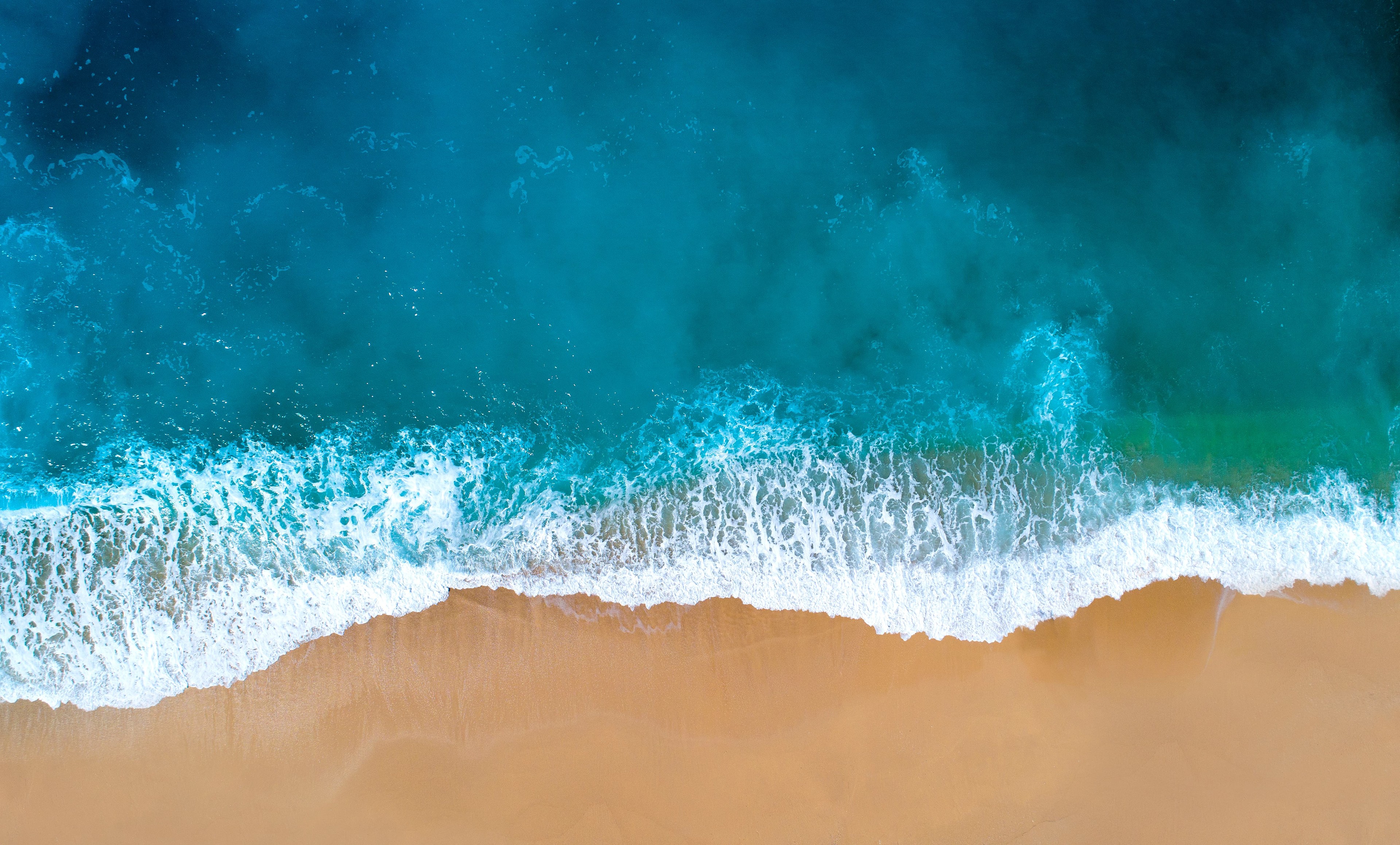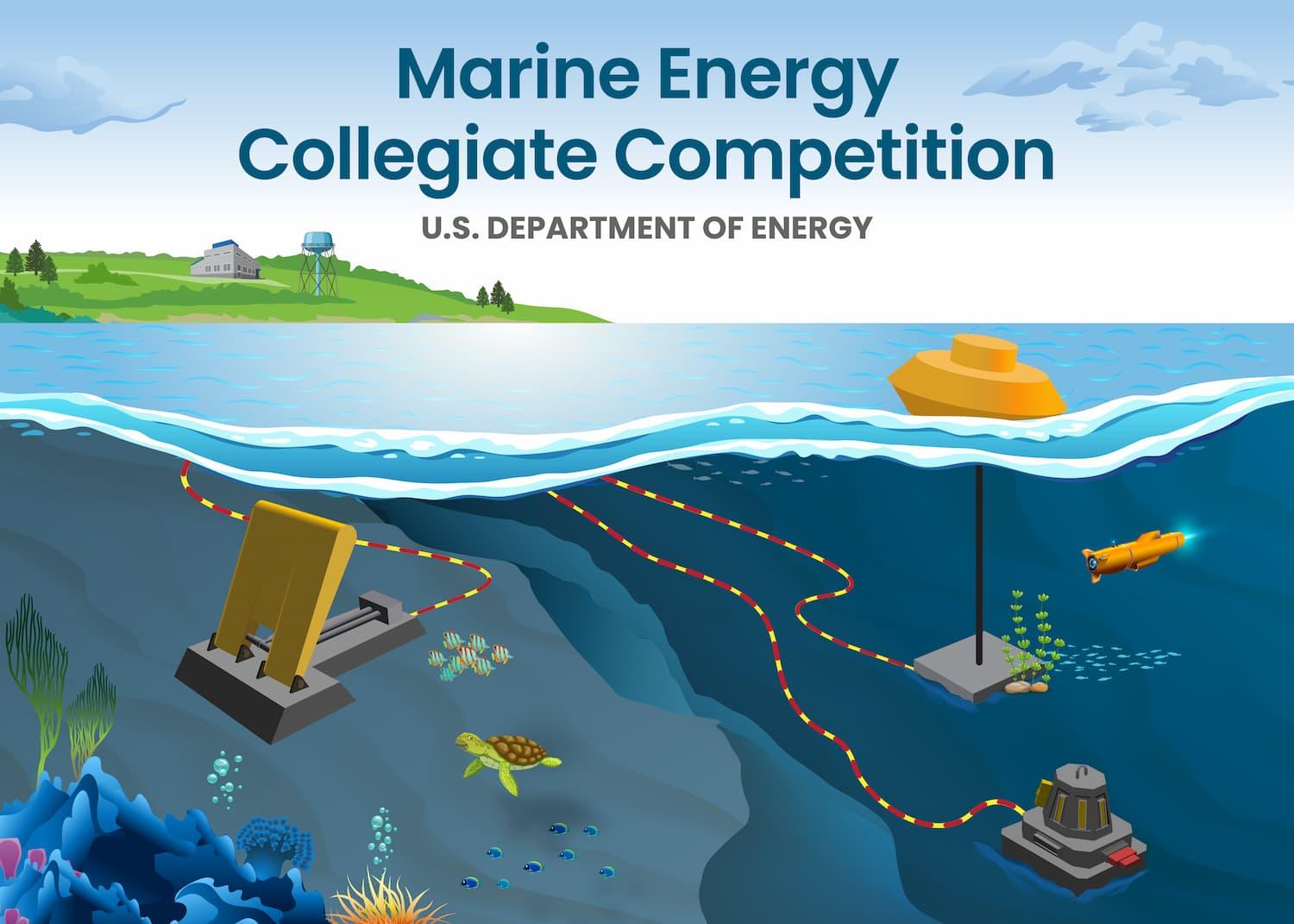Marine Energy Collegiate Competition (MECC)

Marine energy—power generated from ocean waves, currents, tides, and temperature changes—is the world's largest untapped renewable energy resource. However, further work is needed to optimize marine energy device designs and reduce costs.
Nurturing the Future Blue Economy Workforce
The U.S. Department of Energy’s Water Power Technologies Office (WPTO) created the Marine Energy Collegiate Competition (MECC) in 2019 to help advance the marine energy industry and prepare the future marine energy workforce. Part of WPTO's Powering the Blue Economy initiative, the MECC invites interdisciplinary teams of undergraduate and graduate students to:
- Identify the most promising near-term markets for marine energy
- Design an appropriate marine energy device to serve market applications that could have commercial value within the next five years.
Few academic institutions offer marine energy-specific advanced degrees, but the experience gained from this competition can be highly valuable for a wide range of blue economy opportunities. Jobs across the blue economy include opportunities for:
- Communications and marketing specialists
- Project managers
- Educators
- Engineers
- Financial analysts
- Researchers
- Scientists
- Sales representatives
By participating in the MECC, students build the real-world experience and industry connections that will help them prepare for careers in the marine energy sector and the blue economy.

Who Can Participate
Teams must meet the following criteria to be eligible:
- Teams may consist of a combination of post-secondary, undergraduate, and graduate students, but must be at least 50% post-secondary and/or undergraduates.
- Both U.S. and non-U.S. institutions are welcome to apply and participate.
- Non-U.S. institutions are not eligible to receive cash prize funding.
- In a team with students from U.S. and non-U.S. institutions, the lead institution must be a U.S. academic institution accredited by the U.S. Department of Education to be eligible for cash prize funding.
- Teams should strive to include students from a range of academic disciplines, including but not limited to:
- Engineering
- Business
- Marketing
- Communications
- Environmental and Public Policy
- Social Sciences
How to Get Involved
Click 'Follow the Competition' above to stay up-to-date on competition status, application openings, and recent news.
Competition Structure
The MECC invites selected teams to identify a promising market within the blue economy and to determine the best marine energy application within that market to address. Over the course of school year, teams develop materials for two required contests and one optional challenge, outlined below. Teams present their work at the MECC final event, typically held in conjunction with a marine energy industry event.
MECC teams compete in four required contests:
- Business Plan Challenge: Teams will identify a promising market within the blue economy (either a market identified in the WPTO Powering the Blue Economy report or another potential market within the blue economy) and determine, within that market, the best marine energy application to address. Submissions in this challenge will count for approximately 33% of the total final score.
- Technical Design Challenge: Teams will evaluate the performance requirements in their chosen blue economy market by identifying and interviewing at least three potential end users. Teams will complete a detailed design of a marine-energy-powered device to serve those end users. Submissions in this challenge will count for approximately 33% of the total final score.
- Build and Test Challenge: Competitors will build a scaled prototype of their concept and perform a series of lab tests. The submissions in this challenge will count for approximately 14% of the total final score.
- Community Connections Challenge: Competitors will foster connections with the broader marine energy industry and with their local community. The submissions in this challenge will count for approximately 19% of the total final score.

Chart a Course to a Blue Economy Career
Are you an undergraduate or graduate student interested in joining the blue economy? We’re looking for multidisciplinary teams of college students to develop solutions to complex marine energy challenges and build skills and industry connections that will prepare them for careers in clean energy.
Follow this Competition